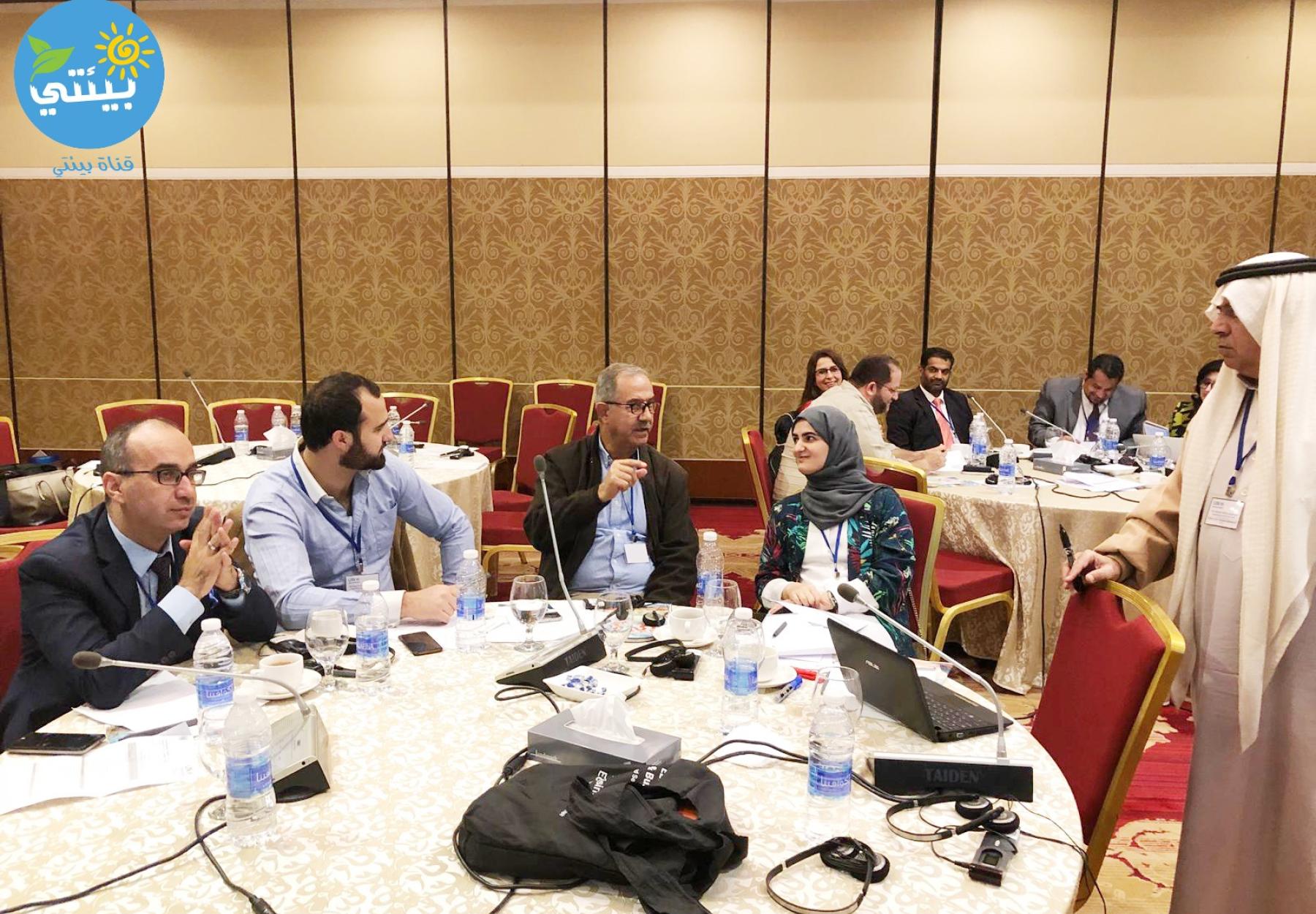
Representing West Asia at the CSM Coordination Committee in Rome APN Manager Mariam Al Jaajaa joined the International Civil Society Mechanism (CSM) Coordination Committee meeting in Rome on behalf of West Asia.
The meeting held on July 4-6, 2018, touched on results of an evaluation process done for the Committee on Food Security (CFS) and its linkage with peoples’ struggles on the ground.The CSM evaluation process was also discussed, including APN’s proposal to develop seats in the CSM, along the existing ones, for communities suffering from wars, occupation and crises.
Al-Jaajaa met on the side of the meeting with the Arab group representative at the Rome-based UN agencies.The coordination committee (CC) consists of 41 seats from 11 constituencies and regions around the world.
It is responsible for ensuring that the functions of the CSM are carried out effectively as possible. The CC performs this role by sharing information, facilitating dialogue on the international level, and supporting analysis and advocacy at national and regional levels.
In Socio-Economic Consultations: The Absence of a Political Will Socio-economic issues were at the centre of consultations of the Jordanian Social and Economic Council in Amman.
APN co-founder Razan Zuayter took part in the meetings which aimed to bring together parties concerned to agree on recommendations addressed to the Prime Minister to contribute to decision-making. The consultations addressed more than 30 economic and social issues, culminating in a report entitled "The State of the Country".
Ms. Zuayter participated in three sub-meetings focusing on the environment, water and agriculture, and social responsibility.The Water and Agriculture Sectors APN joined the meetings on the agriculture and water sectors held in Amman on July 15th, 2018 at the Kempinski Hotel. Razan Zuayter, the group’s co-founder commented on a draft report presented to the participants.
She said that the draft is very important but lacks some basic issues such as support for seed production and development (in both quality and quantity) including cereal production, where domestic grain production accounts for only 2% of local consumption.
Mrs. Zuayter raised other issues such as the need to protect rain-fed agriculture (not just the irrigated) and support agricultural processing.She noted that the report focuses heavily on enhancing exports but marginalizes the need to strengthen local markets and farmers’ access to them. She voiced concern about including “trade liberalization” as a high priority objective. It needs to be examined in depth and the matter cannot be simplified, she said.
Ms. Zuayter stressed the importance of providing donors clear guidance to act within national priorities The Environmental SectorMs. Zuaiter, in remarks at the meeting that was held on July 22nd emphasized that the biggest challenge in this sector is not access to funding, but rather the lack of political will to implement legislation, monitoring and accountability, as well as institutionalizing the relationship with Jordanian civil society as well as with the private sector.
She pointed out that the draft environmental report did not mention civil society at all. She stressed the need to enact laws and apply them to prevent urban expansion at the expense of agricultural land and the need to adopt Jordan's directions on responsible investments, especially in the establishment of tourism and industrial projects.Her remarks also touched on the urgent need to monitor the entry and use of poisonous and prohibited pesticides in Jordan, guide and educate farmers on this matter and monitor organic pollution giving the example of Seil al-Zarqa (sub-basin) where the presence of e.coli and coliform bacteria has been found.
UNEP Regional Consultative Meeting for West Asia GroupThe UN Environment Programme Annual Regional Consultative Meeting for West Asia has been held in Amman with major groups and stakeholders to prepare for the upcoming Environment Assembly in March, 2019.
APN’s founding member Hassan Al-Jaajaa took part in the meeting held on Nov.26-27, 2018 representing the Arab Network for Food Sovereignty (ANFS).
Speaking at the meeting, he said "we have a humanitarian, professional and conscientious responsibility to stand up against bloodshed and environmental destruction in the region and the use of internationally banned weapons, such as white phosphorus in Syria and cluster bombs in Yemen.”
He said “130 children under the age of five die every day (in Yemen). 85 thousand children died in the country due to famine and war.”Al-Jaajaa asked to include these recommendations in the final statement to the Ministerial Meeting. His suggestion was met with support within the group.
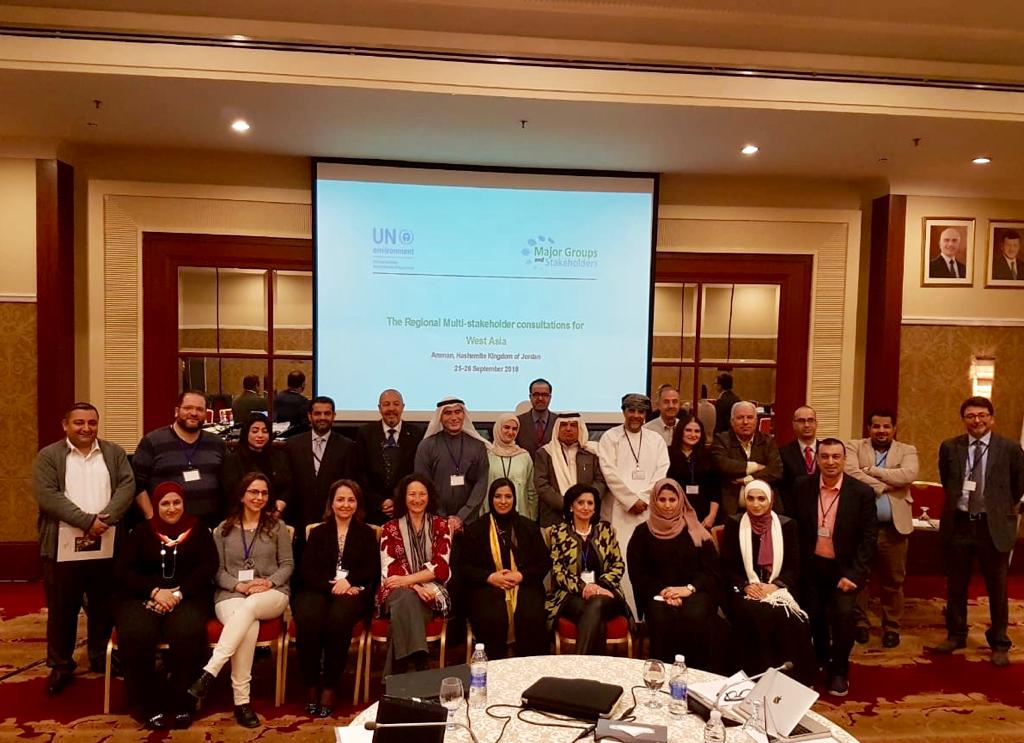 APN: Colonization Destroyed Land Governance in JordanA meeting on land tenure has been held on August 16, 2018 at the Higher Council of Science and Technology.
APN: Colonization Destroyed Land Governance in JordanA meeting on land tenure has been held on August 16, 2018 at the Higher Council of Science and Technology.
APN’s General Manager Mariam Al-Jaajaa represented the group at the meeting which was hosted by the National Committee on Land Governance that is mandated to produce the national land tenure strategy in a participative manner.
In remarks at the meeting, Mrs. Al-Jaajaa said the status of land governance in Jordan, as in many other Arab countries, was the result of the policies of British colonialism, which established new rules and concepts such as land registration and private property instead of customary and common rights. This had grave implications to people’s access to agricultural lands, rangelands and natural resources such as water.
It has also had a major impact on preserving these resources as a collective wealth and sustaining them for future generations. Meeting of the Arab Commission for the Reconstruction of Gaza The board of trustees of the Arab Commission for the Reconstruction of Gaza has discussed its strategy for the next two years (2018-2020).The board members joined by APN co-founder Razan Zuayter on September 8th, 2018 discussed ways to activ ateac their work in Jordan. The meeting was held at the Housing Investors’ Society premises in Amman. 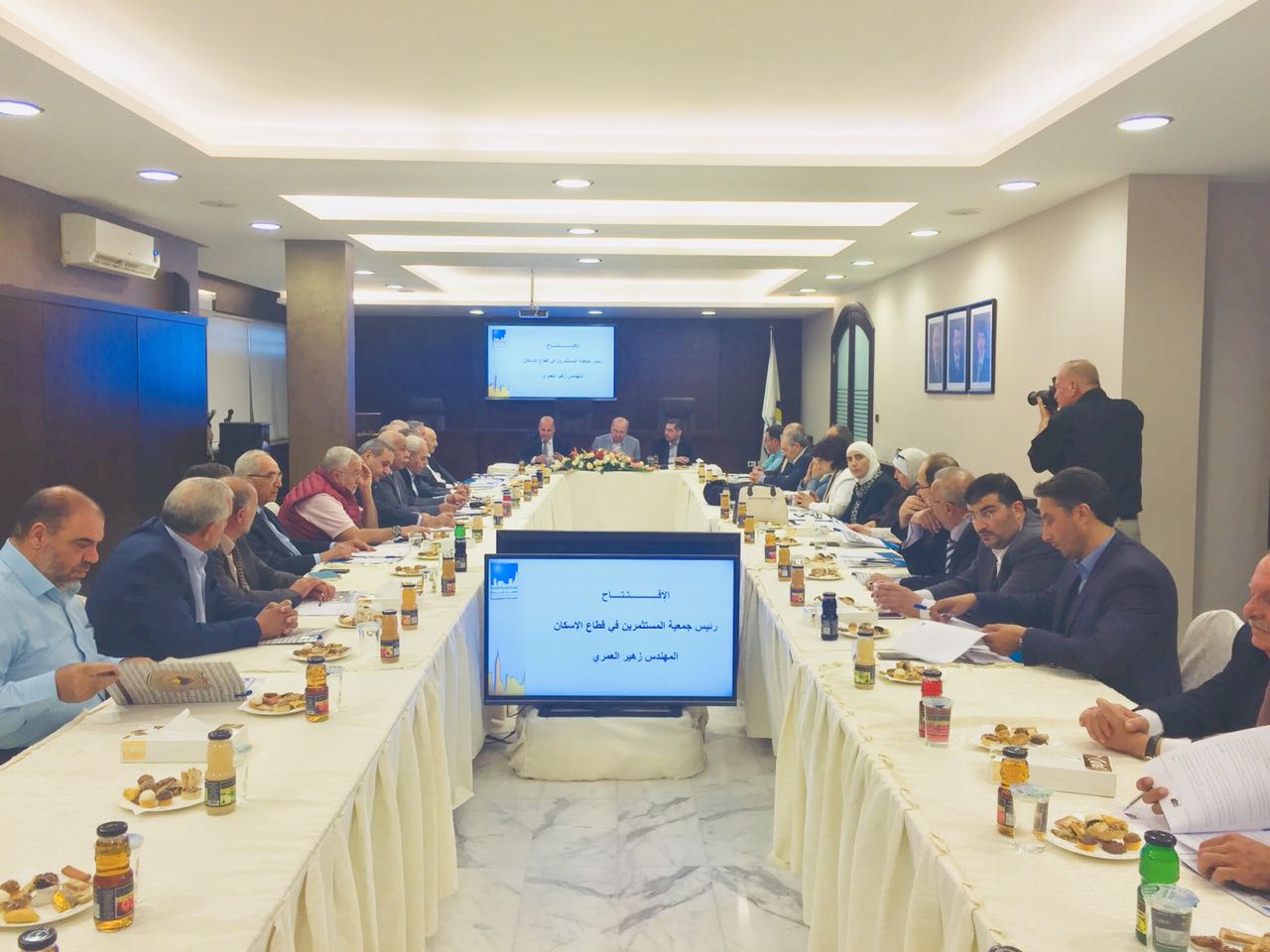 The Green Growth PlanAPN has taken part in a dialogue meeting in Amman focusing on the country’s green growth plan. The three-day meeting was held on Dec.20-23, 2018 and it focused on producing an executive plan for the years 2019-2030.
The Green Growth PlanAPN has taken part in a dialogue meeting in Amman focusing on the country’s green growth plan. The three-day meeting was held on Dec.20-23, 2018 and it focused on producing an executive plan for the years 2019-2030. 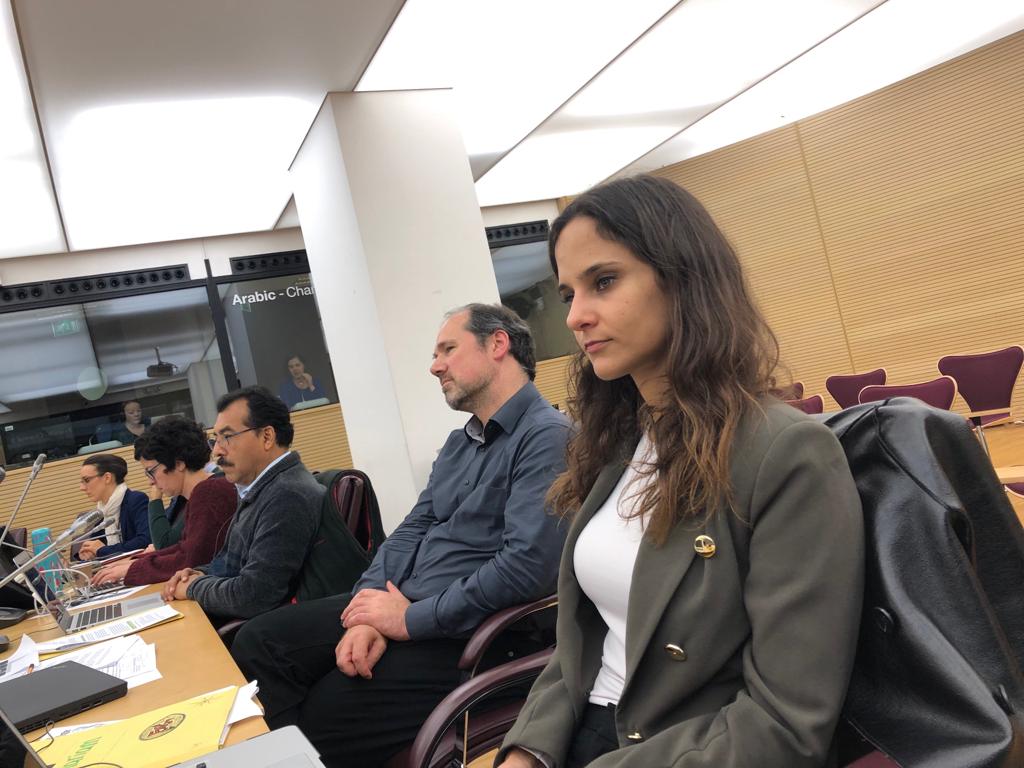 Environmental Challenges Raised with the IUCN HeadAPN has joined the International Union for the Conservation of Nature (IUCN) National Committee in a meeting in Amman with Mrs. Inger Andersen, IUCN’s Director General during a recent visit to Jordan on the organization’s 70th anniversary.The meeting held on Sep.10th, 2018 touched on major environmental challenges and demands for activating the IUCN Western Asia regional office. APN representatives at the meeting stressed the need to give the Arab region the importance extended to other regions and enquired about methods to bring the IUCN decisions that relate to the area into implementation.It is worth noting that APN has succeeded in passing three resolutions over the past years concerning the protection of the Arab environment and accounting for the causes of environmental violations in areas of conflict and occupation.
Environmental Challenges Raised with the IUCN HeadAPN has joined the International Union for the Conservation of Nature (IUCN) National Committee in a meeting in Amman with Mrs. Inger Andersen, IUCN’s Director General during a recent visit to Jordan on the organization’s 70th anniversary.The meeting held on Sep.10th, 2018 touched on major environmental challenges and demands for activating the IUCN Western Asia regional office. APN representatives at the meeting stressed the need to give the Arab region the importance extended to other regions and enquired about methods to bring the IUCN decisions that relate to the area into implementation.It is worth noting that APN has succeeded in passing three resolutions over the past years concerning the protection of the Arab environment and accounting for the causes of environmental violations in areas of conflict and occupation. 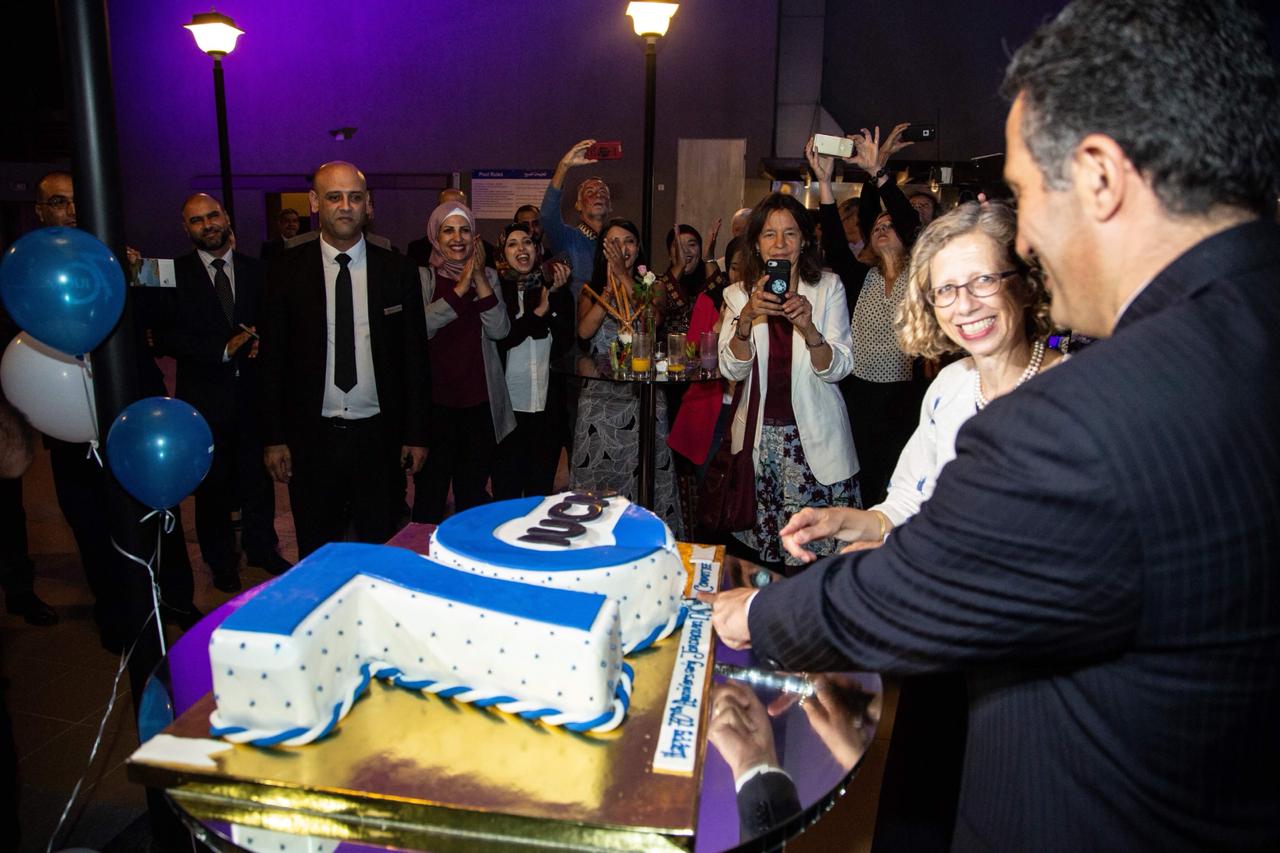 APN Objects to the Workshop on GMOs Organized by the Jordanian Agricultural Engineers’ Association A coalition of civil society groups, institutions and experts opposed to licensing and trading of genetically modified (GM) food seeds raised their objections in a workshop organized by the Jordanian Agricultural Engineers’ Association on September 24th, 2018.
APN Objects to the Workshop on GMOs Organized by the Jordanian Agricultural Engineers’ Association A coalition of civil society groups, institutions and experts opposed to licensing and trading of genetically modified (GM) food seeds raised their objections in a workshop organized by the Jordanian Agricultural Engineers’ Association on September 24th, 2018.
Many experts on GM food, mainly ones opposing it, were not invited to the workshop to prevent them from bringing evidence against these products.It was found that the aim of the workshop was not to provide participants and citizens with an objective dialogue on this sensitive subject.
It was, in fact, a workshop promoting the dictates of the US Department of Agriculture to pass approval of the importation of genetically modified seeds and food in spite of the Jordanian laws and regulations concerned which ban the entry of such products into the country.